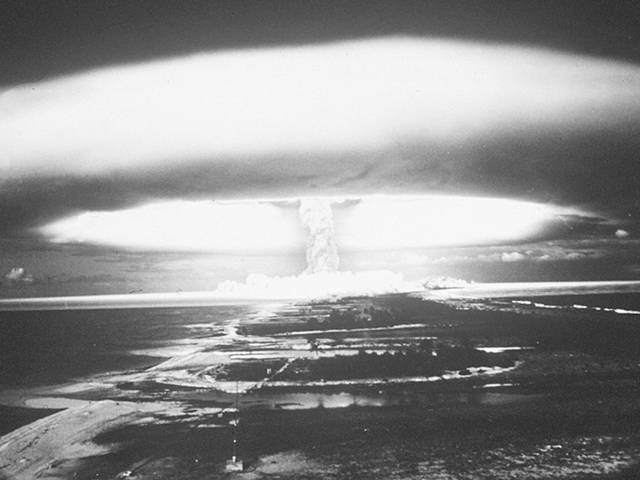In November, 1957, a British bomber took a flight to Malden Island, the middle of the Pacific Ocean carrying a bomb that would transform Britain’s place in the world into the exclusive and elite club of nuclear superpowers. Yet the implications of this explosion continue to reverberate even today.
In 1911, a British scientist discovered the atom and it become apparent that if these scientists could split the atom, it had the potential to release huge amounts of energy in nuclear chain reaction i.e. when an atom is split, it produces smaller particles called neutrons and these neutrons would go on to split other atoms.
Then, in 1939, World War broke out. The scientific research made scientist nervous as the Nazi would also successfully develop an atomic bomb. However, Britain’s lack of resources combined with the continual threat of German bombing led to the critical decision by Winston Churchill who agreed with US president Franklin Roosevelt that the American should takeover the nuclear project. Under the Manhattan project, Britain’s finest scientists were sent to the New Mexico’s desert to develop the nuclear bomb.
In July, 1945, the world witnessed the first ever nuclear explosion in the American desert. Within a month, these atomic bombs were dropped on Japan, ending the war.
The British scientists were entirely excluded from the production process and in 1946, the US Congress passed the McMahon Act, which prohibited any sharing of atomic information with Britain.






